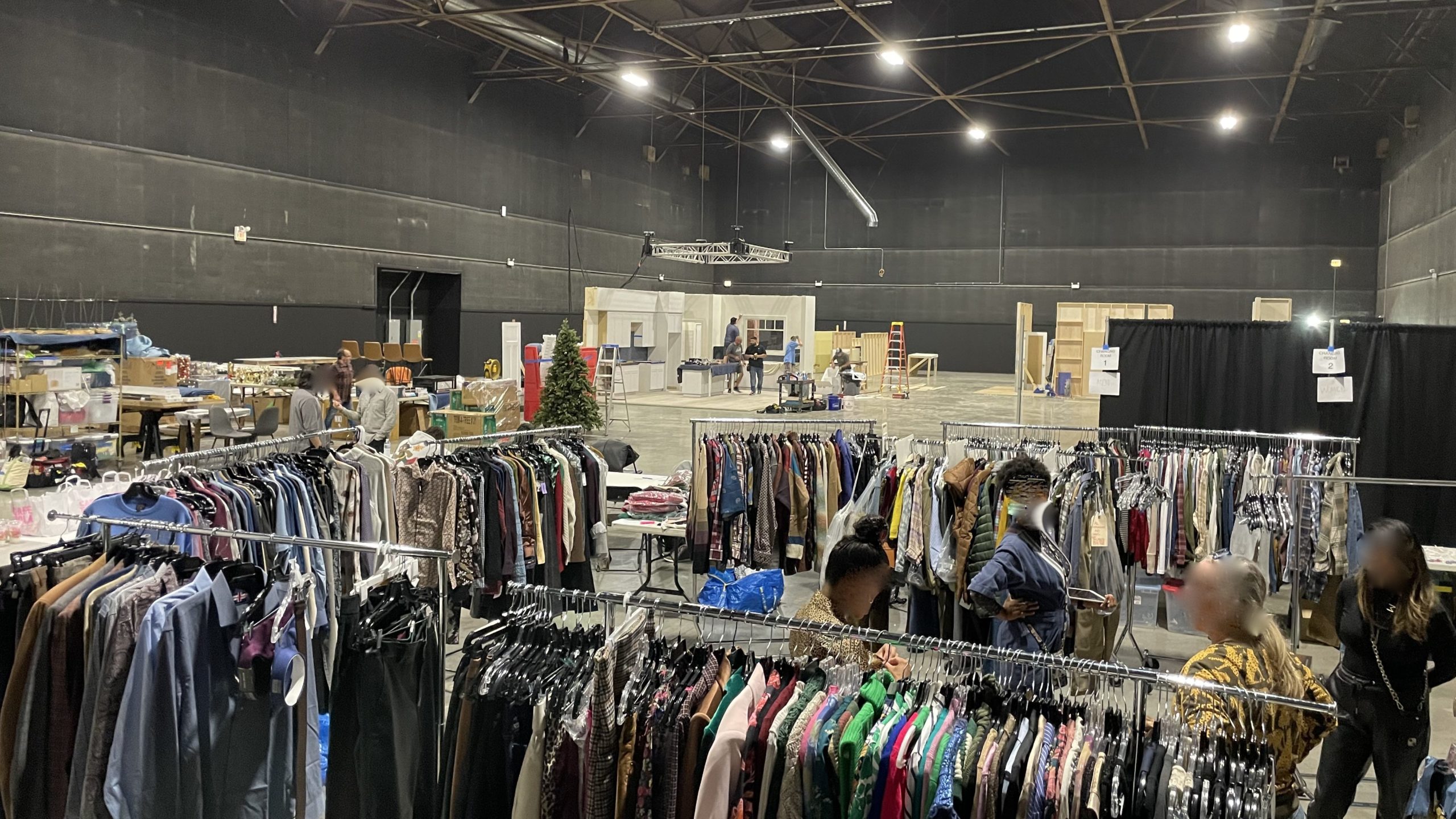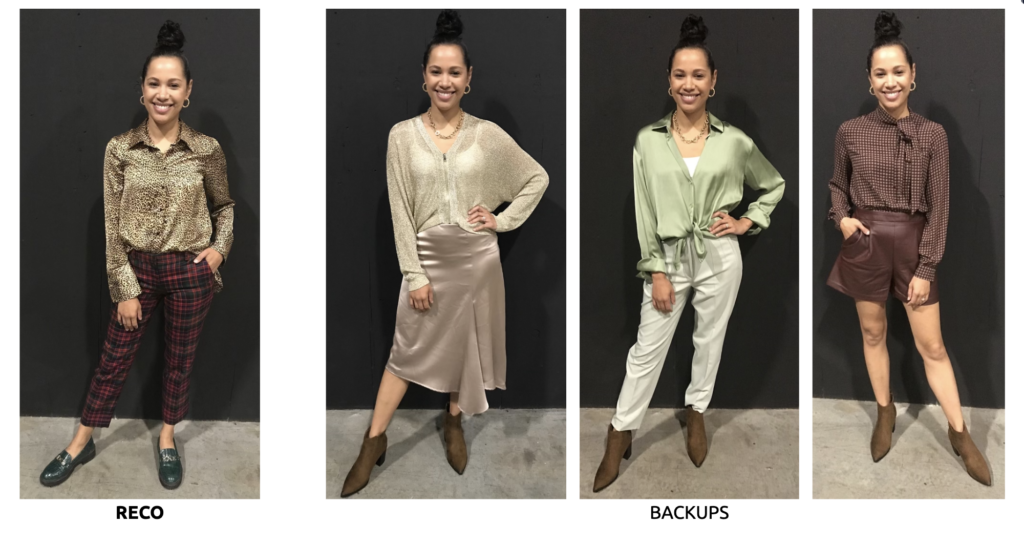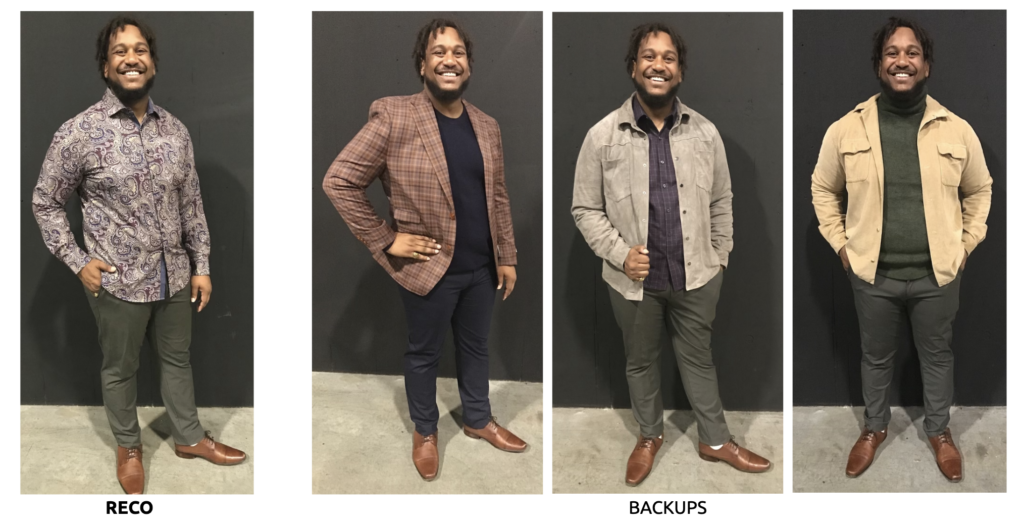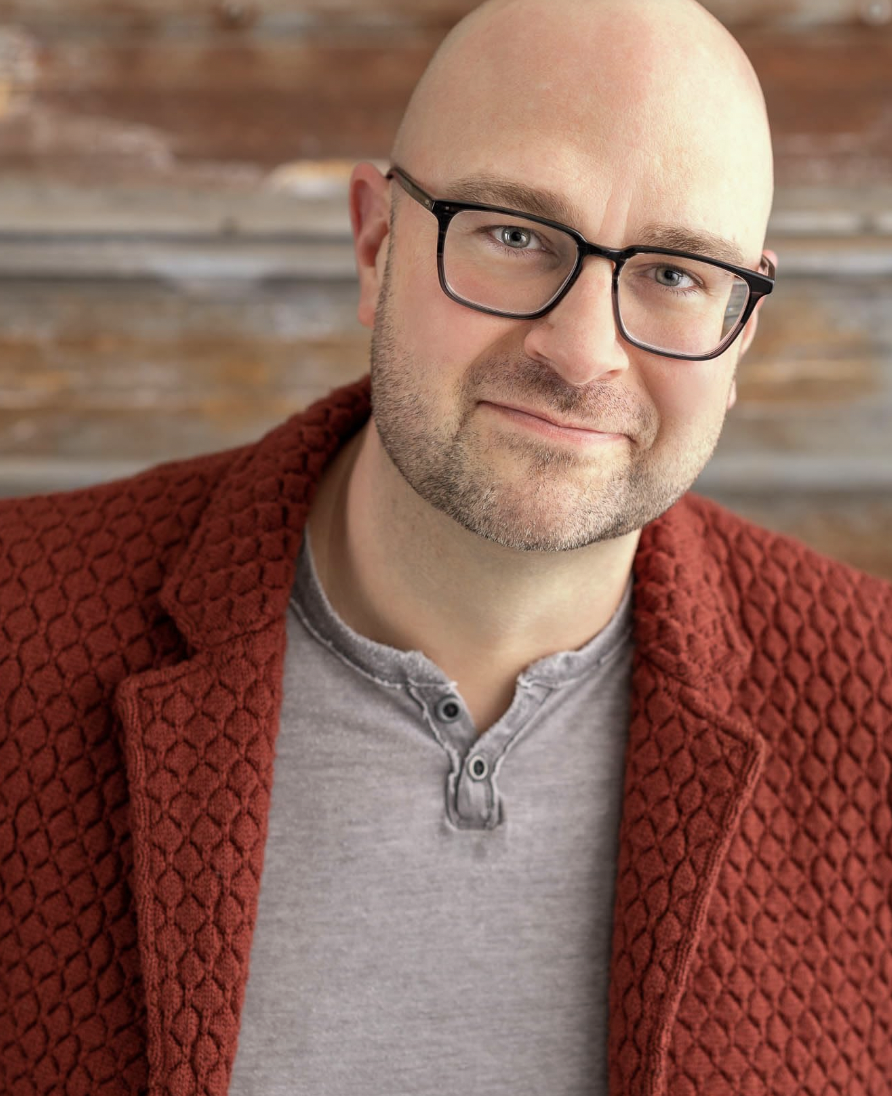You booked that commercial job. Congrats! What happens next? Typically, your wardrobe fitting.
The fitting will be your first official in-person encounter with the production team as a commercial actor. Logistically, wardrobe fittings take place in either the production company’s office space or facilities at the soundstage (e.g. Cinespace, Essanay) where the shoot will bel taking place. When you arrive, the 1st or 2nd AD will check you in and then bring you to the wardrobe stylist to start your fitting. A standard fitting time is one to two hours per actor. It’s also good to know that there is A LOT going on for a director and their team on the fitting day as the shoot is only a day or two away at this point; your encounter with them might be very brief.
Wardrobe fittings for commercials have evolved dramatically in the past decade. When I first started directing commercials in the early 2010s, fittings were a more awkward version of a dress parade for a play, a multi-step succession of showing off the actor in various looks to director and client, always in person and nearly always uncomfortable.

In this scenario, if the clients had notes about the wardrobe, in my experience they generally wouldn’t wait until the actor left the room to start sharing their concerns. And those note sessions, valid as they may or may not be, could be quite demoralizing for an actor (or anyone!) when you are forced to stand at the front of a conference room full of strangers who are all commenting on your appearance. Not ideal.
Nowadays, it’s all about shareable pictures. Instead of parading the actor around to the director and then the clients, the stylist photographs the actor in each look and those pictures are uploaded to a shared folder or Dropbox. Then when the agreed-upon looks have all been photographed, the stylist and director confer, choose a first-choice option, and then send a picture deck of their recommendation and the back-up options to the clients while the actor remains comfortably behind in the dressing area. Then, once the wardrobe choice has been approved, the actor might be asked to don that outfit once more and come over to the client area for a much less awkward in-person wardrobe presentation. Digital picture sharing has made this work far more efficient and way less cringe-inducing for everyone.
As a result of this innovation, though, good wardrobe pictures have become really important. One misstep I see actors make a lot in commercial wardrobe photos is that they bring a “cool guy” indifference to these proceedings. They phone it in. They’re not present. They don’t even look at the camera. From my experience, this is almost always a choice made out of fear or anxiety and almost always this approach yields lackluster pictures, sour expressions, and a near palpable feeling of “I don’t want to be here.”
So, some unsolicited advice from a commercial director who could easily make a coffee table book out of comically bad wardrobe pictures: Put your best foot forward here. Literally. Take the risk to be present and bring some good energy to these photos.
Why? For the good of the project and your career. These pictures travel. The director sees them. The producer and production supervisor sees them. They are included in the Pre-Production Book as a record of the production. One could make the case that these pictures are near the same importance level as your headshots just in terms of the industry people who see them, evaluate them, and start to make a decision about whether they want to work with you again. The fitting is an essential part of the job you fought to get. Yes, you might have to try on a dozen outfits. Bring the same energy to every one of those photos. Getting wardrobe approved is a team effort and your energy in those pictures matters. If you are not making an effort to be present and alive in those photos, it shows up. And when you choose to be mentally absent, the clothes don’t look as good as they could, the stylist can start to resent you, the client wonders what is wrong with you (Is she sick? Why is she making that face?), the director starts to panic, and everything gets harder than it needs to be. Your confidence and charm have the ability to bring everyone’s blood pressure down in a small but real way.
As an example, here are some of the wardrobe presentations from a recent commercial job I directed that I felt were fantastic. These actors were playing the prestigious roles of “Partygoer 2” and “Partygoer 3.” And they look terrific in every shot. They’re present! They’re smiling! The clothes look great! (Shout-out to the terrific stylist, Jana Hwang!) A+ all around! As a director, just looking at these pictures reminds me of how pleasant they were on set and how I would readily work with both of them again should the opportunity arise. As an actor, that’s the kind of memory you want these pictures to conjure.
Relatedly, in order to get the conversation started between the stylist and the director in a more concrete way, your callback footage is generally shared with the stylist and their team which is a good reason to be thoughtful about what you wear for your audition and to also make sure you include that full body slate if you’re self-taping. Those things can really help the Wardrobe Department if there is a time crunch.
I asked my friend and frequent collaborator, Lizzie Cook, one of the pre-eminent costume designers and stylists in Chicago, for her best advice for actors heading into a fitting. Here’s what she shared: “The best thing for a successful fitting is to make sure we have accurate, up-to-date sizes. In the event that we’ve shopped for an actor from an outdated or inaccurate size sheet, it can bring everything to an immediate halt.”
Expanding on Cook’s point, again it is not uncommon for an actor to have their fitting the day before they shoot the commercial. So if the fitting is in the early afternoon and all your sizes are incorrect, that leaves only a few hours for the designer to scramble and re-shop for you before the shoot. And then you’ll have another early morning fitting session on set the next day. And no one wants that kind of eleventh-hour stress.
Additionally, Cook shared that when you are asked to bring personal wardrobe options to a fitting, a small amount of effort goes a long way.
“I know it’s hard to bring the right look for any given character, but please do bring a small variety of anything you think might work. Even if it’s just a pair of pants that are a perfect fit on you.” I asked Cook about things actors might want to avoid doing as well.
“A pet peeve of mine is when an actor says, ‘I would never wear that’ in a fitting. OK, but your character might. In fact, you might not be presented with a single clothing item that you would personally wear in real life. That’s OK! As a designer, we shop based on a character’s needs and not what you might personally wear. That seems like part of the fun though, getting to dress up as someone you’re not. My goal is to make an actor feel comfortable in their character and a big part of feeling the part is looking the part.”
Great points.
The fitting should be a time as an actor where 1) your character comes into sharper focus for you with the help of the costume and the Wardrobe Department and 2) your behavior and attitude solidifies a growing professional relationship with the director, stylist, and production team. Ultimately, making the choice as an actor to risk enthusiasm in your fitting, to demonstrate that you are a professional, and to show you want to be a part of the creative effort is a choice that always, always pays off.
Matt Miller is a Chicago-based director. His recent commercial credits include work for Crumbl Cookies, TD Ameritrade, The Hartford, America’s Best Eyeglasses, and Lowe’s. His spot “Let’s Get Ready to Crumble” featuring Michael Buffer won a National Gold Addy Awary in 2022.





